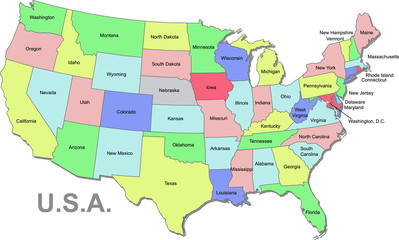Handling Workplace Investigations: A Legal Perspective

Workplace investigations have become increasingly important amid growing awareness of workplace rights and responsibilities. These formal inquiries help uncover facts about alleged misconduct, from harassment claims to suspected theft or policy violations. Getting these people their rights, protects everyone involved and helps prevent costly legal battles down the road.
Many businesses seek guidance from an employment lawyer in Toronto when facing complex workplace issues requiring investigation. The expertise these professionals bring can make the difference between a properly conducted investigation that stands up to scrutiny and one that creates additional legal exposure. With workplace complaints becoming more common, knowing how to handle investigations properly has never been more critical.
When Investigations Are Necessary: Identifying situations that warrant formal inquiries
Not every workplace disagreement needs a formal investigation. But certain situations clearly call for a structured approach. These typically include allegations of harassment, discrimination, bullying, theft, fraud, safety violations, or other serious misconduct that might violate laws or company policies.
You should consider launching an investigation when there’s a formal complaint, when you observe concerning behaviour, or when patterns emerge suggesting deeper issues. Waiting too long to investigate can sometimes be as problematic as not investigating at all. Early intervention often prevents problems from growing larger and more difficult to address.
The decision to investigate shouldn’t be taken lightly. Each investigation consumes resources and creates stress for those involved. But ignoring problems rarely makes them disappear. Instead, unaddressed issues tend to fester, potentially leading to increased liability, damaged morale, higher turnover, and reputational harm.
Some situations might seem minor initially but warrant investigation because they point to systemic issues. For example, what appears to be a simple disagreement between colleagues might actually reveal underlying discrimination. Trust your instincts when something feels wrong, but verify with facts through proper investigation.
Timing matters tremendously. The ideal moment to investigate is soon after learning about potential misconduct, while memories remain fresh and evidence intact. Delaying investigations makes them harder to conduct effectively and signals to your team that you don’t take workplace issues seriously.
Conducting Fair Investigations: Best practices for impartial and thorough investigations
Fairness forms the backbone of any legitimate workplace investigation. This means approaching each case without predetermined conclusions and giving all parties reasonable opportunities to present their perspectives. The investigation should be proportional to the seriousness of the allegations – more detailed for severe claims.
Select your investigator carefully. They should have proper training and no conflicts of interest regarding the parties involved. Sometimes bringing in an external investigator makes sense, especially for serious allegations or when senior staff members face accusations. This helps ensure impartiality and specialised expertise.
Create a clear investigation plan before beginning. Outline the scope, identify potential witnesses, gather relevant documents, and establish a reasonable timeline. This structure helps ensure thoroughness while keeping the process moving forward efficiently. Document your plan to demonstrate your methodical approach.
Interviews require particular care. Meet with witnesses in private settings where they can speak freely. Take detailed notes or consider recording conversations with permission. Ask open-ended questions and avoid leading witnesses toward particular answers. Give the accused party full opportunity to respond to all allegations.
Confidentiality protects everyone involved. Share information only with those who truly need to know. Warn participants against discussing the investigation with colleagues. But never promise absolute confidentiality, as some information may need disclosure during the process or in potential legal proceedings later.
Document everything meticulously. Your records should track each step of the investigation, including who you interviewed, what questions you asked, what answers they gave, and what documents you reviewed. This documentation provides crucial evidence of your thorough and fair process if your investigation faces later challenges.
After gathering evidence, analyse it carefully before reaching conclusions. Apply consistent standards when evaluating conflicting accounts. Base findings on the most likely scenario given all available evidence. Some organisations use the “balance of probabilities” standard – whether something more likely happened than not.
Legal Implications: Understanding the legal aspects of workplace investigations
Workplace investigations carry significant legal implications. Employers have legal duties to investigate certain complaints, particularly those involving harassment, discrimination, or health and safety concerns. Failure to investigate properly can itself become grounds for legal claims against your organisation.
Various laws govern how investigations should proceed. These include human rights legislation, occupational health and safety regulations, privacy laws, and employment standards. These sometimes create competing obligations that require careful navigation. For instance, the duty to investigate must be balanced with privacy considerations.
Procedural fairness matters tremendously from a legal perspective. Courts and tribunals often examine whether investigations gave accused parties proper notice of allegations and fair opportunities to respond. They look for bias-free processes and reasonable conclusions based on available evidence. Cutting corners here often proves costly later.
Privacy concerns require careful handling throughout investigations. Collect only information relevant to the matter at hand. Store investigation materials securely. Limit disclosure to those with legitimate needs to know. Remember that investigation subjects generally have rights to know allegations against them, though not necessarily the identities of all complainants.
The investigation report may become key evidence in legal proceedings. Write it assuming a judge might read it someday. Focus on facts rather than opinions. Explain how you reached conclusions. Address all allegations raised. A well-crafted report demonstrates the thoroughness and fairness of your process.
Potential legal consequences of improperly handled investigations include human rights complaints, constructive dismissal claims, defamation suits, breach of privacy actions, and damages for mental distress. The financial and reputational costs can be substantial. Legal challenges often focus more on how you investigated than on the original complaint.
Expert Assistance: How professional expertise supports employers in managing workplace investigations
Complex investigations often benefit from professional guidance. Workplace investigation specialists bring experience in evidence gathering, witness interviewing, and report writing. Their involvement can strengthen the credibility of your process and findings, particularly in serious or sensitive cases.
Legal advisors provide crucial guidance on procedural requirements and help navigate competing legal obligations. They can review investigation plans, suggest appropriate questions, assess evidence, and review draft reports to identify potential vulnerabilities. Their early involvement often prevents costly mistakes and strengthens your legal position.
External investigators offer important advantages in certain situations. They bring fresh perspectives without internal biases or relationships affecting their judgment. They typically have specialised training in investigation techniques. And their involvement signals your serious commitment to finding truth rather than protecting particular interests.
Technology increasingly supports investigation processes. Specialised software helps manage documents, organise evidence, track interview statements, and create comprehensive reports. These tools can make investigations more efficient while creating better documentation trails that demonstrate thoroughness and fairness.
Training for internal staff who handle investigations pays dividends. Even with external help, your own team needs to understand investigation basics. They should recognise situations requiring investigation, know immediate steps to take, understand confidentiality requirements, and communicate appropriately with affected parties.
Professional support helps balance competing priorities during investigations. These include maintaining workplace productivity, supporting affected employees, managing legal risks, and preserving important relationships. Experts help you navigate these tensions more effectively than most organisations can manage internally.
Conclusion
Workplace investigations require careful handling from start to finish. They protect organisations legally while helping maintain healthy workplace cultures. By following established best practices and seeking appropriate expertise when needed, you can conduct investigations that resolve workplace issues fairly while minimising legal exposure. Remember that investigations, while sometimes uncomfortable, ultimately serve everyone’s interest in workplaces free from misconduct.










